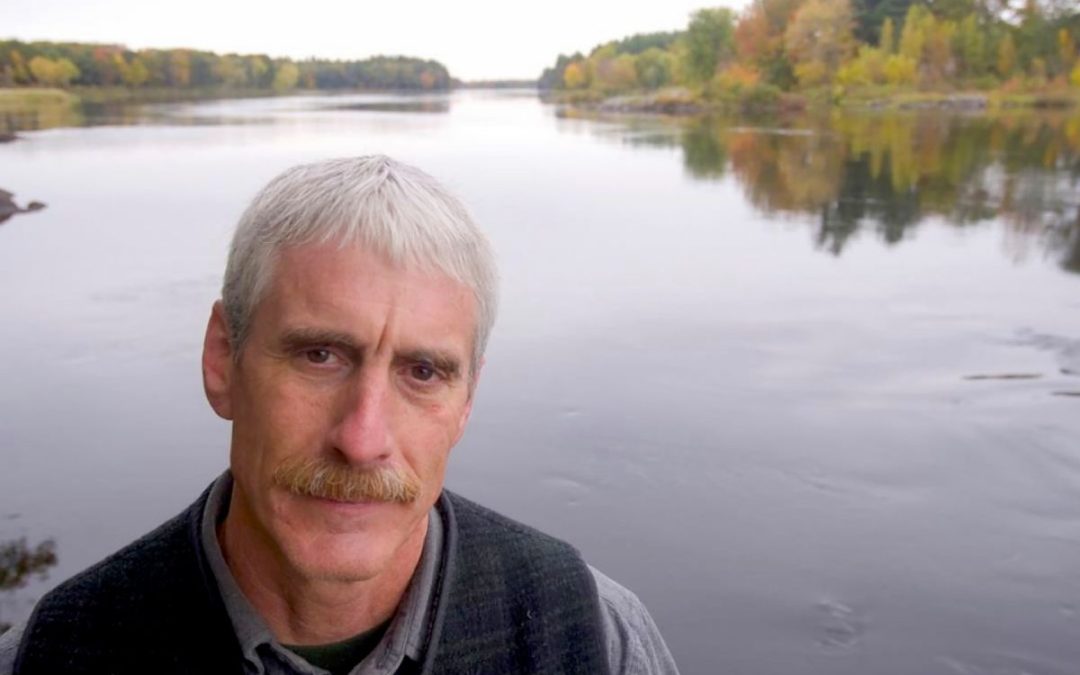John Banks is one of three individuals honored by the Wabanaki Alliance at the 2025 Nihkaniyane event. Banks is a citizen of the Penobscot Nation, who served as the first natural resources director for the Penobscot Nation, a position he held for 41 years until his retirement in 2021. His legacy is marked by many accomplishments and honors, including:
-
- 2021, lifetime achievement award from Natural Resources Council of Maine.
- 2019, lifetime achievement award from U.S. Environmental Protection Agency, which noted, “Due to John Banks’ 39 years of leadership [at that time], the Penobscot Nation’s environmental program is widely recognized as a model for tribes across the nation.”
- 2019, Distinguished Alumnus from the University of Maine’s School of Forest Resources.
- 2015, First indigenous member of the U.S. delegation to the North Atlantic Salmon Conservation Organization at its annual international meeting.
Banks was the Penobscot Nation’s representative on the Maine-Indian State Tribal Commission from 1987 to 2021, making him its longest-serving member. He also served on many local, regional and national organization boards, including the National Tribal Environmental Council, Native American Fish and Wildlife Society, National Indian Policy Center, and the Tribal Operations Committee with the federal EPA.
But arguably Banks’ most noteworthy accomplishment involves bringing a Wabanaki voice and leadership to the historic Penobscot River Restoration Project (1999-2016) in which two dams nearest to the sea were removed and a stream-like bypass channel was completed around a third dam at Howland. Completed in 2016, the $63 million restoration project opened almost 2,000 miles of habitat for 11 species of sea-run fish that had been choked off from their spawning grounds for almost two centuries by dams across the river.
Since then, the river has come back alive with millions of river herring joined by Atlantic salmon, shad, sturgeon and other species in numbers that hadn’t been seen on the Penobscot River for nearly two centuries. Laura Rose Day credits Banks with a key intervention in 2002, when it looked like negotiations that had been going on for three years between environmental groups and the hydro company owner were about to collapse.
“[John] asked for a few minutes,” she wrote in a 2014 Christian Science Monitor commentary recalling the moment. “Removing an eagle feather from a cloth wrap, he circled the table, laying the feather on each shoulder. He reminded us that, no matter whom we served, we were also responsible for being the voice for all the creatures of the river – the birds, the fish, and all of the people as well. The common goal had to be the health of the river.”
Two years later, a historic agreement was reached, with the hydro company agreeing to sell three dams, two of them for removal, in exchange for being allowed to increase power generation at six other sites.
“I think an important aspect of the Penobscot project is the nature of the partnership and how we all came together to accomplish what seemed like, at the time, a very rough road ahead; perseverance with collaboration can accomplish great things. We do not have to be satisfied with the status quo,” Banks recalled in a 2021 interview with the Natural Resources Council of Maine.
All my relations: We are connected with all other life forms. The seven generations: Decisions we make today will impact the generations who follow us. John Banks brought those key Wabanaki teachings to the table at a critical contentious moment — bringing forward values that made a world of difference to millions of river herring and hundreds of Atlantic salmon and shad that are now able to freely swim upstream to previously blocked spawning grounds.
In that 2021 NRCM interview, Allison Wells asked Banks: “What’s next for you, the river, and the Penobscot Nation?”
He replied: “The Penobscot Nation will continue to uphold our inherent stewardship responsibilities for the health of the watershed for the benefit of future generations.”
Return to the Nihkaniyane: Let’s Go Forward Together post to read more about honorees Brianne Lolar and Emma Soctomah.







